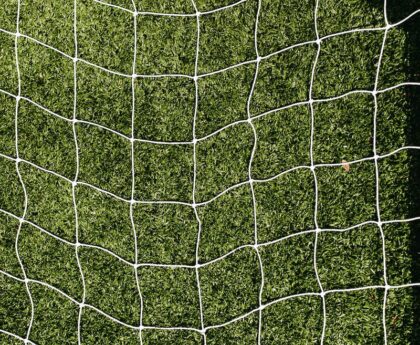Dina Asher-Smith Bemoans Nerve Problem After Disappointing World Athletics Championships
By
Published by The New York Times, August 25, 2023
Introduction
Dina Asher-Smith, the British sprinter, has attributed her failure to win a medal in the women’s 100m and 200m events at the World Athletics Championships to a mystery nerve problem that left her without feeling below the waist. Despite arriving in Budapest in exceptional form, Asher-Smith could only manage a seventh-place finish in the 200m final. The disappointment was compounded by Zharnel Hughes’ fourth-place finish in the men’s 200m. The women’s event was won by Shericka Jackson, while Noah Lyles secured the title in the men’s event. In this article, we analyze Asher-Smith’s performance, discuss the implications of her nerve problem, and consider the future of British sprinting.
Asher-Smith’s Disappointment
Asher-Smith had high hopes for the World Athletics Championships, believing that she was in the best form of her life. However, her dreams were shattered when she suddenly lost feeling from the waist down during the 100m semi-final. Despite gradually regaining sensation, she was unable to replicate the personal best she set in 2019 and finished seventh in the final. The nerve problem not only affected her physically but also had a psychological impact on her performance. While her teammate Daryll Neita set a personal best in the 200m event, Asher-Smith was left frustrated and disillusioned.
The Nerve Problem
Asher-Smith’s mysterious nerve problem is concerning not only for her but also for the medical professionals investigating the issue. The sudden loss of feeling is an alarming symptom that warrants further examination. While she clarified that she experienced no pain, the lack of neural control profoundly affected her performance, preventing her from executing her race strategy effectively. This incident raises questions about the potential long-term impact on her career and the necessity for comprehensive medical evaluations.
Philosophical Reflection
Asher-Smith’s response to her disappointing performance showcases her resilience and determination. In her own words, “Sometimes when life hands you lemons, you have to make lemonade.” Despite the setback, she made the best of the cards she was dealt. The ability to adapt and find meaning in adversity is central to the philosophy of stoicism, a school of thought that encourages individuals to focus on what they can control rather than being consumed by external factors. Asher-Smith’s philosophical perspective demonstrates her strength of character and should be commended.
The Future of British Sprinting
While Asher-Smith’s current nerve problem may raise concerns about her future performances, it is crucial not to overlook the talent and potential of British sprinting as a whole. Despite Asher-Smith’s disappointment, her teammate Neita performed exceptionally well, setting a personal best in the 200m event. Additionally, Zharnel Hughes, although not at his best this season, demonstrated his ability to compete at the highest level by securing a bronze medal in the 100m event. The relay races remain an opportunity for the British team to shine, with medal chances in both the men’s and women’s events. The inclusion of Eugene Amo-Dadzie, a 31-year-old full-time accountant, adds an element of excitement and nostalgia to the team’s composition. It is important to support and encourage all athletes as they strive to reach their full potential.
Conclusion
Dina Asher-Smith’s disappointing performance at the World Athletics Championships can be attributed to a mysterious nerve problem that affected her ability to feel below the waist. Despite this setback, Asher-Smith’s philosophical perspective and ability to make the best of the situation demonstrate her strength of character. While there are concerns about the long-term effects of her nerve problem, it is important to recognize the talent and potential of British sprinting as a whole. As the relay races approach, there is still an opportunity for the British team to excel and add to their medal haul. The support and encouragement of all athletes is crucial as they continue to pursue their dreams on the track.

<< photo by Chikinbun >>
The image is for illustrative purposes only and does not depict the actual situation.
You might want to read !
- Ricciardo’s Hand Injury at Dutch GP: The Impact on his Championship Bid
- Rugby Rivals Clash: South Africa Dominates New Zealand in World Cup Warm-up
- Dominance on Display: Al-Nassr Shines in Convincing Victory Over Al-Fateh
- Emerging from Darkness: A Heartbreaking Loss as Bray Wyatt is Laid to Rest
- Mary Earps to Score with Nike U-Turn as Goalkeeper Shirts Hit the Market
- The Resurgence of Femke Bol: From Setbacks to Success in the World of 400m Hurdles
- Speeding to Success: Richardson claims gold as Asher-Smith falls short
- Rising Star Sha’Carri Richardson Claims Global Triumph in World Championship
- Josh Kerr Upends Jakob Ingebrigtsen at World Championships, Securing 1500m Gold
- Heartbreak and Triumph: Laura Muir’s Emotional Journey at the 1500m World Championships
- Golden Glory: Johnson-Thompson’s Spectacular Victory in Heptathlon World Championships
- The Rise of Ronaldo: Hat-Trick Hero in Saudi Pro League Dominance




